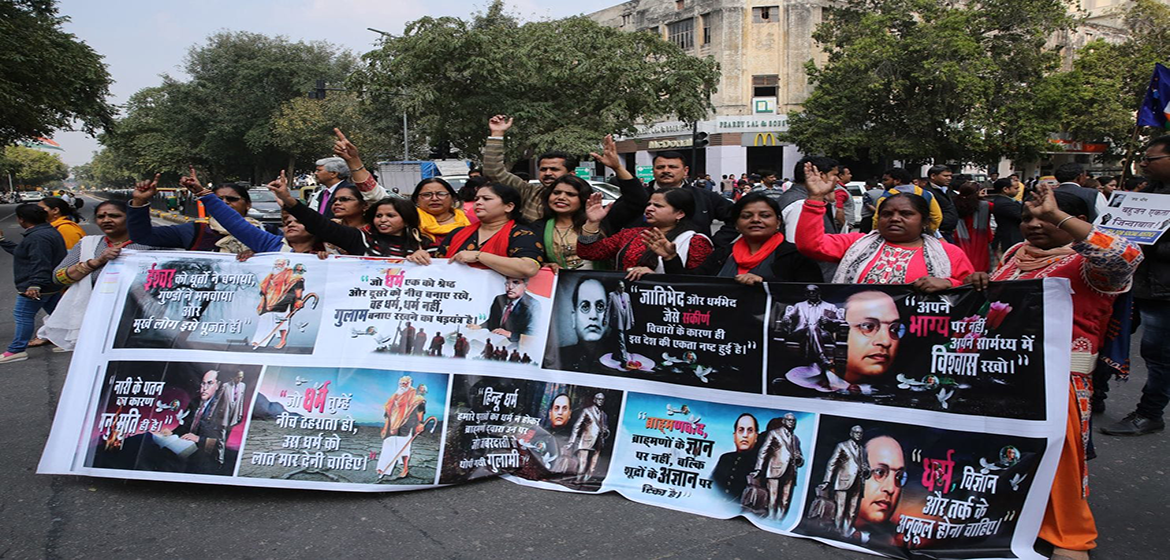By Arun Agrawal
Arun Agrawal is a professor at the School for Environment and Sustainability at the University of Michigan.
For the past few weeks, the specter of war has hung over South Asia. But buried under the headlines about terrorist attacks, counterstrikes and fighter jet skirmishes is the threat of forced displacement, which now hangs over the heads of millions of indigenous peoples across India.
In February, ruled that indigenous and local households whose land claims had not yet been upheld — roughly 2 million , or an 10 million people — would be evicted from their homes by July 24.
The court then put a hold on the evictions until its next hearing in July, providing a brief respite to residents who are largely impoverished and cannot afford to move without grievous harm — but also extending their anxiety. Now, Prime Minister Narendra Modi’s government must ask the Supreme Court to reconsider its unjust decision. If the court fails to do so, the government should move expeditiously to reverse the judgment through legislation.
The court case in question centers around a that recognizes individual household-based rights as well as communities’ rights to protect and manage their customary forests. Researchers estimate that could benefit if the law was fully implemented — but it . The Supreme Court’s February ruling would in effect short-circuit the appeals process and evict households whose initial claims were rejected, often by the local agencies that have designs on the land in question.
But despite the court’s decision, relocations should not underpin conservation policies for ethical, scientific and electoral reasons.
First, the potential eviction of tribal, indigenous households from their traditional lands is an unethical act adversely affecting millions of impoverished people — at a scale that approaches only the of India and Pakistan.
Moreover, the initial litigation is not founded in the best available scientific knowledge about conservation and sustainable human use of natural resources, which finds that indigenous peoples and local communities are the most effective managers of the world’s forests and biodiversity.
Too many research disciplines still wrongly blame the poor for their poverty, the powerless for crimes and indigenous peoples in forests for deforestation. The conventional approach to conservation, traceable to revered names such as , involves the exclusion of the people who live in and near the nature that conservationists seek to protect. This approach — what researchers have termed — continues the colonial exclusion of local communities from resources.
Yet blaming less powerful indigenous peoples for environmental degradation is now widely recognized as . Current research has identified the causes of contemporary environmental destruction — which is in its scope — in the of consumption, the trans-border resource extraction activities operating through and the enormous concentration of in the hands of a small number of people who manipulate the economic system to protect their privileges.
On the other hand, small-scale human forest use has been found to be essential in maintaining and replicating . Elinor Ostrom won the Nobel Prize in economics in 2009 in part for demonstrating that small-scale indigenous and and govern resources sustainably. But instead of working with India’s indigenous peoples to help them protect nature, the country’s conservationists and foresters continue their war on the very group that should be their natural allies.
Finally, from a pragmatic standpoint, the threat of evictions of indigenous households could mobilize a vast constituency of voters against the current government in national elections. With the elections scheduled for April and May — before the issue is considered by the Supreme Court again — the threat of displacement will hover over the voting. The Indian government simply cannot allow the evictions of millions of people and then sweep it under the rug without democratic accountability.
Scientific knowledge and ethical principles seldom persuade those in power to act. But politics might. The court’s decision will affect a far larger population than the 2 million households who now face eviction because of social and cultural links — and scare off tens of millions more who have yet to file for their rights. The door is still open for Modi’s government to legislate to reverse the court’s decision. Now, millions of Indians are waiting with bated breath to see if itthe government will walk through the door or, regrettably, decide to slam it shut.
Source:



